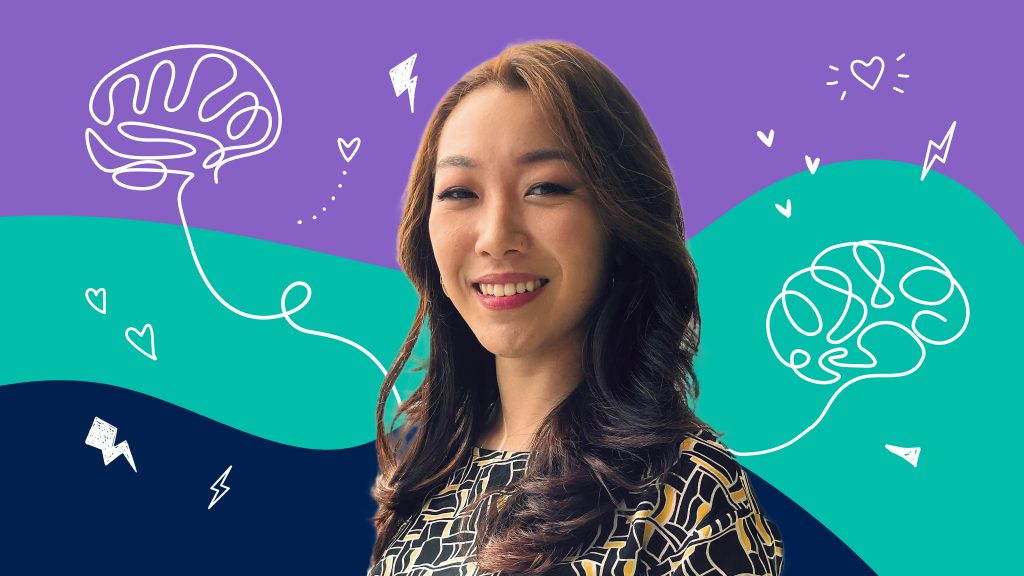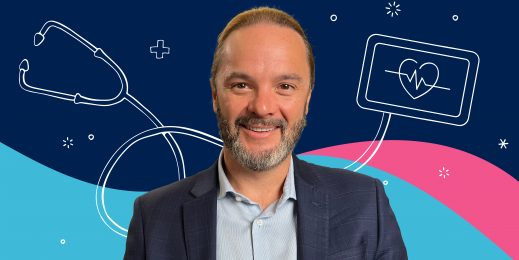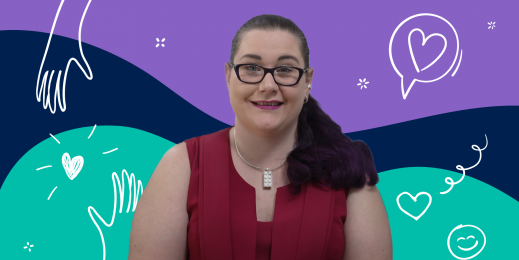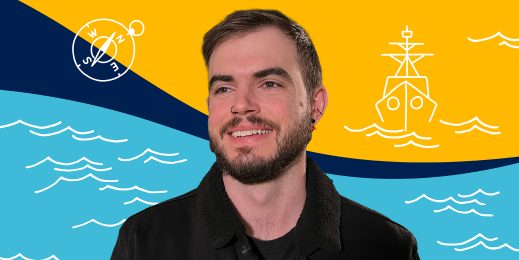
Neurodiversity in the workplace: How Cecilia Fang is smashing the stigma
After being diagnosed with Attention Deficit Hyperactivity Disorder (ADHD), this Microsoft ANZ employee was determined to keep bringing her whole self to work.
Cecilia Fang thrives as a Modern Work Specialist, a position she has held at Microsoft for two-and-a-half years. This involves looking after more than 95 customers across Aotearoa (New Zealand).
Fang explains products to clients, enabling them to connect, collaborate and be secure in a hybrid work environment. Dynamic both in and out of the office, Cecilia loves to do boxing, high intensity interval training, lift weights, dance and play with her dog Panko in her downtime.
While she is invigorated by her work, Cecilia’s career path has involved courageously overcoming its share of hurdles.
Raised in a traditional Asian household, she says she grew up under the weight of many cultural and family expectations. She often had trouble focusing, sitting still and keeping quiet.
It took Fang’s arrival in a tech workplace environment and being diagnosed with Attention Deficit Hyperactivity Disorder (ADHD) for many things to make sense.
Now, Fang is determined to own her diagnosis and open up conversations for other employees to do the same.
Life’s early challenges
As a child, Fang felt that she might not have the same priorities as the adults around her.
“Growing up in an immigrant Asian household, you have these expectations you feel you have to rise to and that your family expect you to meet,” she says.
Along with shouldering these expectations, Fang’s childhood was always in a state of influx. Her family moved frequently throughout Australia and Aotearoa due to her father’s work commitments, which meant that she attended about 11 or 12 different schools.
In hindsight, Cecilia says that this made it difficult to form close friendships. Without a feeling of permanence, she focused on achieving the best grades possible in the hope of gaining her family’s approval.
The university chapter
Fang graduated from school with impeccable grades but wasn’t sure what she wanted to study at a tertiary level.
She thought she was too clumsy to be a doctor and didn’t like maths enough to study engineering. She felt envious of others who had a specific talent such as being able to draw or play an instrument – the path ahead for these people seemed clear. It was really by the process of elimination that Fang enrolled to study economics and law.
“I also thought it would make my parents happy. What was important to them was job security,” she reveals of the decision.
Fang gave law and economics her best shot but it didn’t excite her. The thought of waking up each day and being a lawyer made her feel unhappy. She began having panic attacks.
“This is where I want to be!”
While still studying economics and law, her potential career trajectory then took a dramatic turnaround. As part of her extra-curricular program, she was invited to visit the Microsoft office.
Everything about the technology environment and industry ticked Fang’s boxes. The people were friendly, approachable and dynamic. As the industry is always evolving, she could sense that the learning would never stop.
And there was another bonus – if she secured a position within the tech industry, she might be able to wear a hoodie to work.
Fang applied for the Microsoft Aspire Program and was thrilled to be accepted.
Surprise! We’re having a lockdown
Fang joined the Microsoft Aspire program mere months before the COVID-19 pandemic took hold.
Unfortunately, this meant that the usual connections a new employee might form and the assurance that comes from normal workplace orientation activities just weren’t available. While Fang struggled with a lack of confidence during this period, what transpired during the pandemic and lockdown turned out to be life altering.
“Isolation made me acknowledge things about myself that I hadn’t faced or understood in the past,” she says.
Fang had always struggled to sit still or maintain focus. She would often zone out of conversations and lived a chaotic life. She had always told herself these were just bad personality traits and something about her that needed to be ‘straightened out’.
Lockdown meant spending long periods of time alone, prompting self-reflection, as it did for so many. Fang finally found the time and space to research her symptoms and realised that she might have ADHD.
Her feelings suddenly made sense and were confirmed when she sought the help of a psychiatrist and received an official diagnosis.
I had spent my life trying to mask it, but it’s who I am. It’s a disorder and knowing now that I have it, I can forgive myself.
Working with ADHD
Fang made some major adjustments to her life post diagnosis which wasn’t easy. She had to find the right medication, re-evaluate her own expectations of her life and career, and find a way to tell family and friends.
She made the decision to inform her manager at Microsoft and was overwhelmed by the support she received.
“I had to tell many people in my life, but my manager’s response was the best. He simply said, ‘Thank you for telling me, Cecilia, I don’t know anything about this disorder, but I’d love to learn,’” she says.
Fang is a Modern Work and Security Specialist and sits within the small-to-medium corporate team, looking after half of the market in Aotearoa.
Her role involves empowering clients to achieve the most productive hybrid work environment possible. This can mean explaining new products, integrating them and offering further support, recommendations and guidance.
Fang loves her role and feels there couldn’t be a better fit for her.
“If I had to diagnose the tech industry with anything, it would be with a pretty severe case of ADHD. And I mean that in all the best ways. It’s always changing, it’s so high energy, it doesn’t stop giving you new information and it’s dynamic.
“It completely energises me. I’m lucky to be at the forefront of tech innovation. I get to be curious and I love my job,” she says.
Being authentic at work
Experiencing all that she has, Cecilia believes that more workplace conversations around neurodiversity need to happen.
Her diagnosis has made her interested in learning about other conditions such as Obsessive Compulsive Disorder (OCD) and autism, and how these impact people’s professional lives.
“One of the only good things about lockdown is that people reached out to one another. It opened up a well of empathy and we need that to continue. We are all different and instead of comparing ourselves to others, we should celebrate our differences and our individual wins,” she says.
I want to be my best and true self at work.








